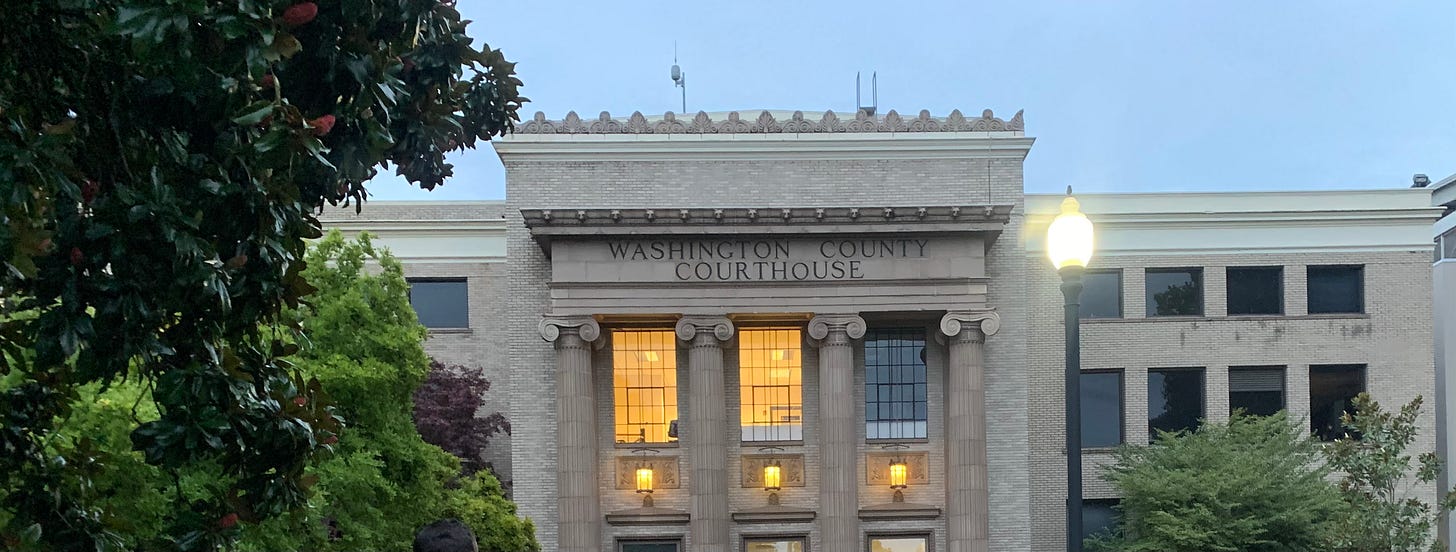Gain Share is a boon to Washington County—and a bane to the rest of the state
The economic implications of the program are too significant to skip a state-mandated sunset review, as would happen if a proposal in the Legislature is approved
Legislative leaders are trying to avoid scheduled analysis in 2023 of a tax provision that sends $16 million a year to Oregon’s richest county, Washington, and almost nothing to the rest of the state. With early renewal, the Gain Share program would escape scrutiny for 14 years – at least until the next scheduled review in 2029.
Gain Share is the payment of state revenue (from income taxes) to cities and counties that grant 15-year partial exemptions from property taxes (primarily on capital equipment) to businesses like wind farms, data centers – and semiconductor makers like Intel. The exemptions are granted under the state’s Strategic Investment Program (SIP), whose purpose is to encourage companies to add good-paying jobs. The theory of Gain Share is that employees of SIP companies pay a lot in state income taxes, and so the state should “share” some of its “gain” with the jurisdictions that granted the property tax reductions.
The extension, without the six-year “sunset review” required by state law, is tucked into SB 1524, written in the Senate Finance and Revenue Committee and working its way through the legislature in its feverish final days.
Gain Share is calculated as 50% of new employees’ income tax and 20% of retained employees’ income tax. Those tax receipts are funneled from the state back to the county of the employer. When Washington County’s take rose to $40 million a year in 2015, the Legislature, during its last review of the program, reduced Gain Share’s maximum payout to a county to $16 million.
The program’s total cost is $16.8 million a year; seven counties divide the $800,000 Washington doesn’t get, and 28 counties get nothing.
Advocates of Gain Share say counties receiving the revenue should be compensated for the property tax breaks they give to businesses. Their argument ignores other factors:
Property taxes fund K-12, and because of the way the school funding formula works, property tax exemptions harm school districts across the state
Counties collect from SIP businesses Community Service Fees to offset some of the foregone property tax revenue
Counties collect property taxes from the homes of these generally well-paid employees
Is Gain Share justified? Local governments have produced no documentation of their costs serving SIP businesses. That’s the kind of information one would expect in a review.
The Legislature should examine Gain Share in 2023 and consider whether its benefits outweigh the costs.
Bennett Minton and Jody Wiser are members of Tax Fairness Oregon, a network of volunteers who advocate for a rational and equitable tax code. They have lobbied the Legislature on Gain Share.






